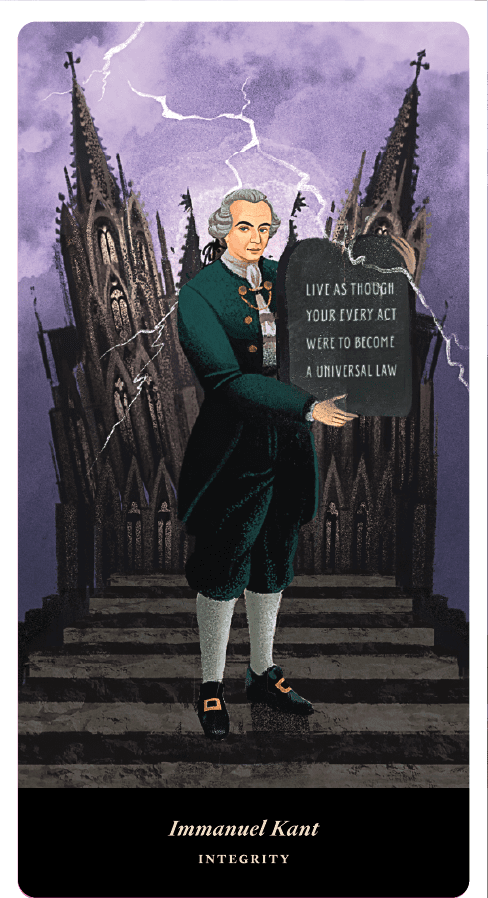Immanuel Kant | Live as Though Your Every Act Were to Become a Universal Law 1724 PRUSSIA 1804 PRUSSIA
Kant is a philosopher of integrity. He teaches us that integrity is rooted in acting consistently according to rational moral principles that are transparent for everyone else to follow. Each of us is endowed with the power to reason and to establish laws for ourselves that we regularly obey. These laws are our principles. Before Kant, matters of right and wrong were generally decided by religious, legal, or cultural authorities, which varied according to time and place. The force of these dictates was often tied to reward and punishment. Kant asks us not to act morally out of self-interest. We should not act out of a desire for a reward, like going to heaven, or because we fear punishment by legal authorities. For Kant, we are moral only if we act according to rational laws that we set for ourselves and that we would deem worthy for all rational agents to follow. To be consistent and unified in action and thought, to be at one with ourselves by adhering to our principles, is to have integrity and to realize our humanity to the fullest.

